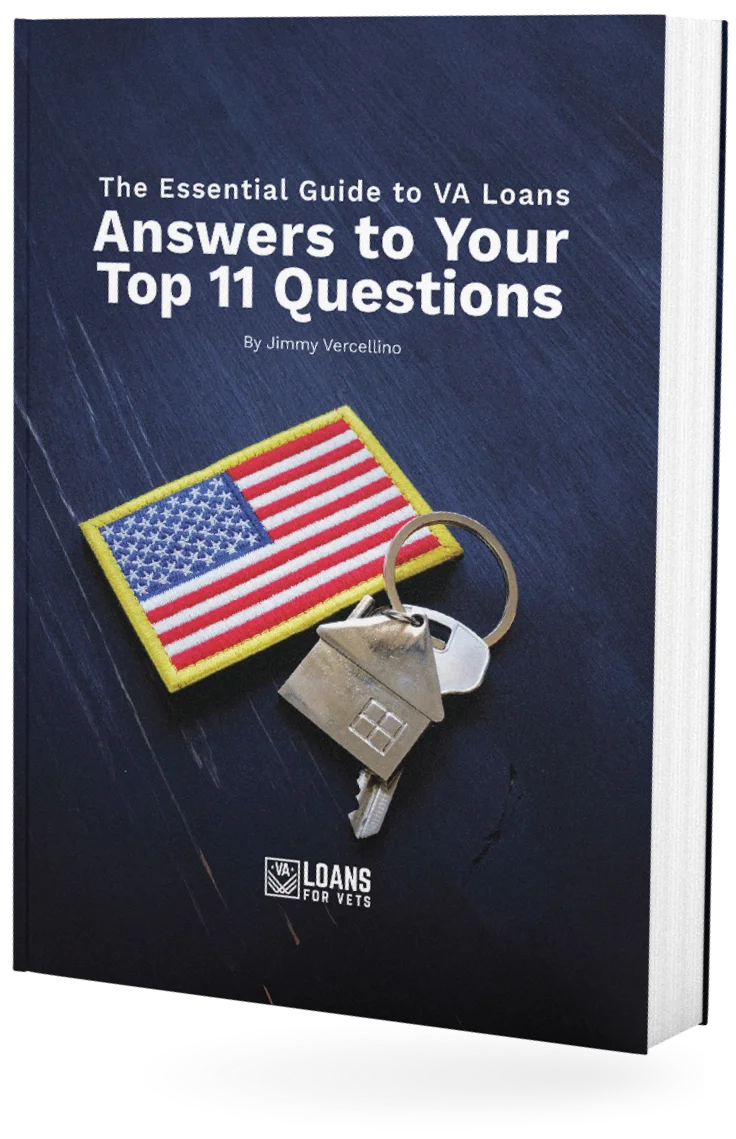The Department of Veterans Affairs (VA) provides benefits to active duty service members and veterans of the armed forces. One of the many benefits is providing a home loan guarantee, which makes homeownership more accessible to men and women in uniform.
VA loans can be a great option for those who qualify because in many cases, they don’t require a down payment. This removes a significant barrier to home ownership. Even if a down payment is required, the VA home loan program can help eligible people lower the cost of buying a home.
Eliminating the need for a down payment allows armed forces members to provide stable housing for their families, sometimes at a lower cost than renting a smaller residence.
Read on to learn more about VA loans, their benefits, and how they work.
What is a VA Loan?
VA Loans are offered by private lenders, including banks and mortgage companies. However, they are backed by the Department of Veterans Affairs. This backing, or guarantee, by the US Government, lowers the risk to lenders. This lets lenders give better benefits to homeowners, including the ability to purchase the home without a down payment.
Not everybody can take advantage of these benefits. Only active duty service members, veterans, and surviving spouses of serving members can apply for a VA Loan.
How do VA Loans Work?
Your eligibility for VA loans will depend on your service history and your home buying history. You may be eligible for a full entitlement, or a remaining entitlement.
Full Entitlement
Many people have full entitlement to VA home loans. People with full entitlement have no loan limits, and won’t have to make a down payment on their loan. To determine eligibility for this program, you will need a Certificate of Eligibility (COE) from the VA.
Once you have your COE, you can apply for a loan from a lender of your choice, including your local bank or credit union. The lender will also need to review your credit history and income levels to make sure you can afford monthly mortgage payments.
The COE tells your lender that the VA is guaranteeing the home up to a certain amount. If you default on your loan, the VA will pay up to 25% of the loan amount. This promise from the VA lets lenders give loans with more favorable terms to eligible borrowers.
There may be a VA loan limit on the amount that they will guarantee to the lender, which in turn may limit the size of the loan you’re eligible for. If you want to take out a larger loan, you may need to make a down payment.
Remaining Entitlement
Some people will not have full entitlement. Instead, they may have remaining entitlement.
People with remaining entitlement may be able to take out a new loan with no down payment. They may use their remaining entitlement in conjunction with a down payment to purchase a home using a VA home loan if the sales price of the home is over $144,000.
Other Benefits of a VA Loan
In addition to not requiring a down payment on a home loan, there are many benefits to obtaining a VA loan, especially when compared to conventional loans. Here are some of the common benefits of going through the VA to secure a home loan.
Lower loan rates than conventional mortgages
Often, lenders can give better interest rates on VA loans. Lowering the mortgage rate can significantly lower the loan balance and the overall cost of owning a home. Alternatively, this type of loan can help you buy a larger home for a lower cost.
Easier for those with lower credit scores to take out a loan
Because VA loans are backed by the Department of Veterans Affairs, lenders have incentives to provide loans to people who may not otherwise qualify for conventional loans. People with low credit scores or who filed bankruptcy recently are eligible for the VA home loan program when they may not be eligible for other, conventional, home loans.
No mortgage insurance is required for a VA loan
Additionally, with a VA loan, you won’t need to purchase private mortgage insurance (PMI). Most borrowers who pay less than 20% of the total home cost as a down payment will need to purchase PMI.
The PMI protects the lender’s interest in the home. Mortgage insurance can cost between 0.5% and 1.86% of the value of the home. This may not seem like a lot, but mortgage insurance can cost more than $100 a month and will add up over several years of homeownership.
Fewer costs, fees, and penalties with VA loans
With VA loans, there are fewer closing costs, which the seller is responsible for, and there are no penalties for paying off the home early. These benefits will lower the overall cost of purchasing a home.
However, some veterans will need to pay a VA funding fee. This offsets the cost of the program and helps ensure that other veterans can take advantage of home loan programs in the future. This fee can be as high as 3.3% of the loan amount and will vary depending on the applicant’s service history and what type of loan they want.
Multiple types of loans are available through the VA
VA benefits can be used for several different types of loans, including VA purchase loans, used to buy a house with no down payment, and loans to refinance a mortgage. People opting for VA loans can take out fixed-rate, adjustable-rate, and jumbo loans, depending on their needs and ability to pay.
Refinancing loans can help veterans who already own a home to get a lower interest rate, or to take advantage of the equity in their home and pull some cash out of the home.
Working with a VA Loan Specialist
Buying a home and obtaining the correct type of loan can be daunting. Working with a VA Loan Specialist can help streamline the process and ensure that you receive all the benefits you’re eligible for. Having someone on your side who knows how this process works, can find the best rates, and who can put you in touch with local lenders can be invaluable when you’re searching for a home.
For more information about how VA Loans work and to determine your eligibility, don’t hesitate to contact VA Loans for Vets today.



